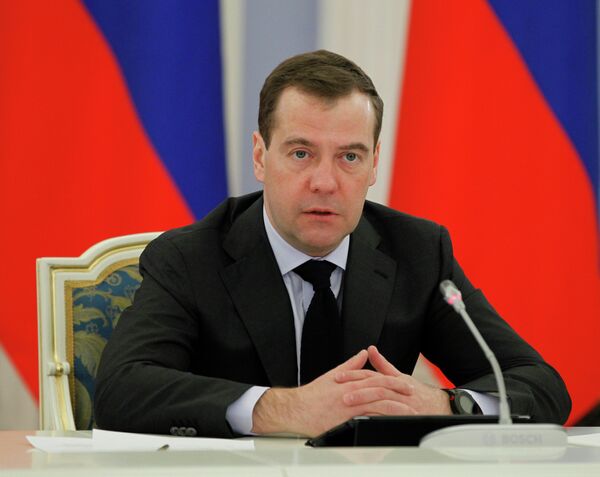MOSCOW, January 30 (RIA Novosti) – Russia has scrapped a decade-old agreement with the United States that granted Moscow financial aid to fight crime, including drug trafficking, the Russian government said Wednesday, but the move does not spell an end to broader cooperation in this area.
Prime Minister Dmitry Medvedev signed an order terminating the 2002 agreement on Monday as “it is out of line with today’s realities and has exhausted its potential,” the statement on the government’s official website said.
The agreement was originally prompted by Russia’s lack of budget financing for law enforcement at the time, the government said, and was intended to support Moscow’s efforts in combating drug trafficking, cybercrime, money laundering, human trafficking, corruption and terrorism.
“During these years [since 2002], the law enforcement system in Russia has changed. At present, we have enough of our own funds and opportunities for these [anti-crime] projects,” Irina Yarovaya, head of the State Duma’s committee for security and corruption prevention, said Wednesday. “That is why the agreement was terminated as an outdated document,” she added.
It was not immediately clear how much money had been disbursed under the deal.
Russia's Federal Drug Control Service (FSKN) said in a press release Wednesday afternoon that a new agreement on Russian-US cooperation in fighting drugs is currently in the works and that bilateral "relations in the anti-narcotics area are at a high point" and only getting better.
The head of the service, Russia’s drug czar Viktor Ivanov, has recently praised Russian-US anti-drug cooperation in Afghanistan and traveled to the United States last month to attend bilateral meetings on combatting drug trafficking and money laundering.
A high-ranking drug-enforcement official told RIA Novosti earlier in the day that the Russian move would not affect overall anti-crime cooperation with the United States, as the old agreement had regulated only one specific aspect of this cooperation and had been mostly humanitarian in nature.
“We are talking about only one document, which lost its effectiveness a long time ago,” the source said, adding that the FSKN "has never been a part or a beneficiary of this agreement.”
Washington announced last week it was withdrawing from a bilateral Russian-US working group on civil society issues, due to what it said was a crackdown by the Russian government on civil society groups.
Late last year, Washington angered the Russian government by introducing the so-called Magnitsky Act, a law imposing sanctions against Russian officials suspected of human rights abuses. The law was named after Sergei Magnitsky, a whistleblowing lawyer who died in a Moscow jail in 2009.
Russia responded by banning US citizens from adopting Russian children and prohibiting politically active Russian nongovernmental organizations from accepting financing from the United States.
Updated with FSKN statement


